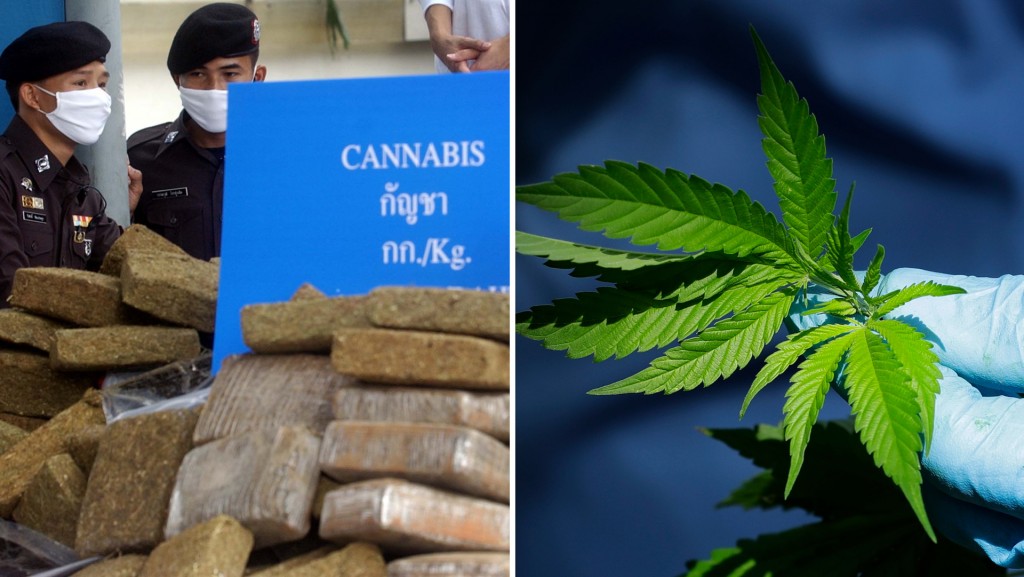A new law that legitimizes the use of medical marijuana for medical purposes has sailed through the National Legislative Assembly (NLA) yesterday with overwhelming support.
Under the revised Narcotic Drugs Act, possession of marijuana and krathom within legal limits will be allowed for treatment of certain diseases, for first aid or in cases of emergency.
However, anyone possessing more than 10 kilograms of marijuana will be treated as having the intent to sell it illegally. The possession of marijuana for purposes other than the strict limits outlined under the law remains liable to legal action.
Those found in possession of less than 10 kilograms of marijuana could still face up to five years in jail and a fine of 100,000 baht.
Anyone possessing more than 10 kilograms of the drug risks imprisonment of between one and 15 years, and a fine up to 1 million baht.
The law amends the existing Narcotic Drugs Act of 1979.
The amendment also increases the National Narcotics Control Committee to 25 members, up from 17. The eight new members include the permanent secretary of the Agriculture and Cooperatives Ministry, the director-general of the Department for Development of Thai Traditional and Alternative Medicine, and the director-general of the Department of Health Service Support.
The committee has the authority to give permission to requests for production, import and export of marijuana, and also to approve regulations proposed by relevant state agencies.
After the law has been in force for three years, the committee is required to review all permissions every six months.
The law allows possession of “a necessary amount” of marijuana for medical treatment.
Those in possession of the drug for this purpose need to carry a doctor’s prescription.
It will also be legal under the new law to possess marijuana for research and development as well as agricultural, commercial, scientific and industrial purposes.
Among those permitted to possess marijuana are patients who need the drug for treatment, state agencies responsible for research or medicine-related education, Thai Red Cross, anti-narcotics agencies, institutions of higher education with research and teaching on medicine, and registered farmer groups.
With this law going into effect, the growing of marijuana and processing within the legal limit will be allowed, under close supervision by the Office of the Narcotics Control Board.
Adult use of recreational cannabis remains illegal. It is forbidden to use Marijuana across much of South East Asia, which has some of the world’s harshest punishments for drug law violations outside of the Kingdom of Saudi Arabia. As in KSA, trafficking narcotics in Thailand is also punishable by death. Marijuana traffickers can be subject to the death penalty in Singapore, Indonesia, and Malaysia as well. However, bordering country, Malaysia is currently contemplating medical marijuana legalization.
Qualifying doctors are exempt from legal ramifications. Anyone else caught carrying more than 10 kilograms of ganga –or kancha as it is known colloquially– will face charges for possession with intent to illegally distribute. However, possession of less than 10kg may still incur a sentence of up to five years in prison and a fine of Bt100,000 or $3,068 at today’s market rate.


